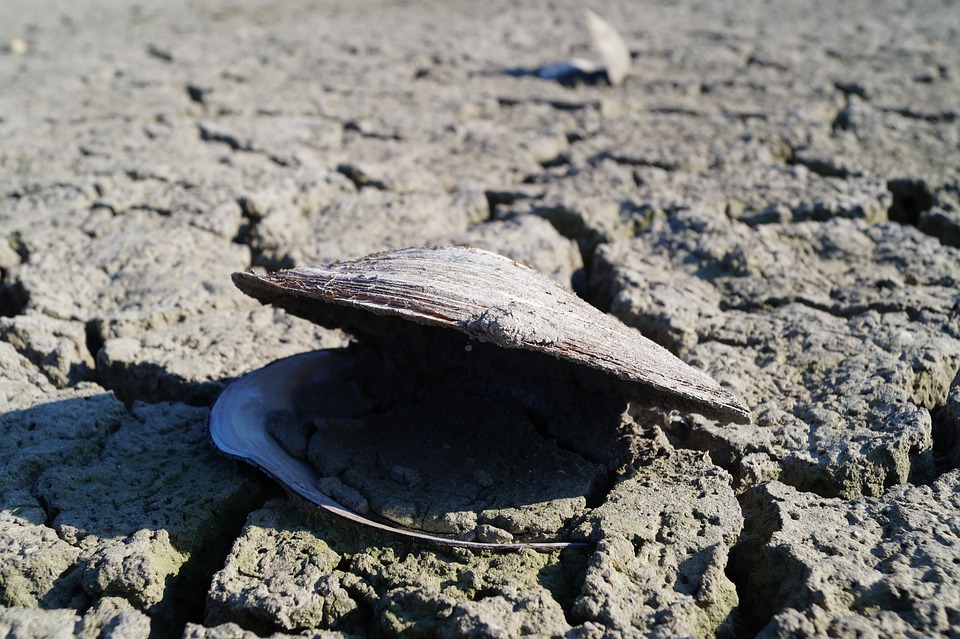In recent years, the world bore witness to the intense heat that the planet is under, with record-breaking droughts and wildfires afflicting developing and developed countries alike. According to a new study, an increase in the world’s temperature by 2°C would significantly increase the number and intensity of these events, compared to a 1.5°C.
The new study was conducted by University of East Anglia researchers, which indicates that more than a quarter of the planet would see an increase in dryness if the world’s temperature goes up by 2°C. The researchers published their paper in Nature magazine, arguing that keeping the increase to 1.5°C would significantly slow down this process.
“On the basis of the ensemble median ToEA [time of emergence for aridification] for each grid cell, aridification emerges over 32% (RCP4.5) and 24% (RCP8.5) of the total land surface before the ensemble median of global mean temperature change reaches 2 °C in each scenario. Moreover, ToEA is avoided in about two-thirds of the above regions if the maximum global warming level is limited to 1.5 °C,” the paper reads.
Aridity is basically how scientists measure the dryness of regions, which can have a significant effect on habitability, the ecosystem, and agriculture, among other things. As one of the authors of the study, Dr. Chang-Eui Park notes, an increase in aridity could have a devastating impact on food, water, and shelter, Phys.org reports.
"Aridification is a serious threat because it can critically impact areas such as agriculture, water quality, and biodiversity. It can also lead to more droughts and wildfires - similar to those seen raging across California,” Dr. Park said.
While it’s true that reducing the temperature increase would benefit some countries more than others, this is still a global threat. This especially concerning for countries that import most of their food and goods.



 Baidu Approves $5 Billion Share Buyback and Plans First-Ever Dividend in 2026
Baidu Approves $5 Billion Share Buyback and Plans First-Ever Dividend in 2026  SoftBank and Intel Partner to Develop Next-Generation Memory Chips for AI Data Centers
SoftBank and Intel Partner to Develop Next-Generation Memory Chips for AI Data Centers  SpaceX Prioritizes Moon Mission Before Mars as Starship Development Accelerates
SpaceX Prioritizes Moon Mission Before Mars as Starship Development Accelerates  Nvidia Nears $20 Billion OpenAI Investment as AI Funding Race Intensifies
Nvidia Nears $20 Billion OpenAI Investment as AI Funding Race Intensifies  Palantir Stock Jumps After Strong Q4 Earnings Beat and Upbeat 2026 Revenue Forecast
Palantir Stock Jumps After Strong Q4 Earnings Beat and Upbeat 2026 Revenue Forecast  Sony Q3 Profit Jumps on Gaming and Image Sensors, Full-Year Outlook Raised
Sony Q3 Profit Jumps on Gaming and Image Sensors, Full-Year Outlook Raised  Alphabet’s Massive AI Spending Surge Signals Confidence in Google’s Growth Engine
Alphabet’s Massive AI Spending Surge Signals Confidence in Google’s Growth Engine  OpenAI Expands Enterprise AI Strategy With Major Hiring Push Ahead of New Business Offering
OpenAI Expands Enterprise AI Strategy With Major Hiring Push Ahead of New Business Offering  SpaceX Pushes for Early Stock Index Inclusion Ahead of Potential Record-Breaking IPO
SpaceX Pushes for Early Stock Index Inclusion Ahead of Potential Record-Breaking IPO  Global PC Makers Eye Chinese Memory Chip Suppliers Amid Ongoing Supply Crunch
Global PC Makers Eye Chinese Memory Chip Suppliers Amid Ongoing Supply Crunch  Tencent Shares Slide After WeChat Restricts YuanBao AI Promotional Links
Tencent Shares Slide After WeChat Restricts YuanBao AI Promotional Links  Nintendo Shares Slide After Earnings Miss Raises Switch 2 Margin Concerns
Nintendo Shares Slide After Earnings Miss Raises Switch 2 Margin Concerns  Instagram Outage Disrupts Thousands of U.S. Users
Instagram Outage Disrupts Thousands of U.S. Users  Amazon Stock Rebounds After Earnings as $200B Capex Plan Sparks AI Spending Debate
Amazon Stock Rebounds After Earnings as $200B Capex Plan Sparks AI Spending Debate  Oracle Plans $45–$50 Billion Funding Push in 2026 to Expand Cloud and AI Infrastructure
Oracle Plans $45–$50 Billion Funding Push in 2026 to Expand Cloud and AI Infrastructure  AMD Shares Slide Despite Earnings Beat as Cautious Revenue Outlook Weighs on Stock
AMD Shares Slide Despite Earnings Beat as Cautious Revenue Outlook Weighs on Stock 































